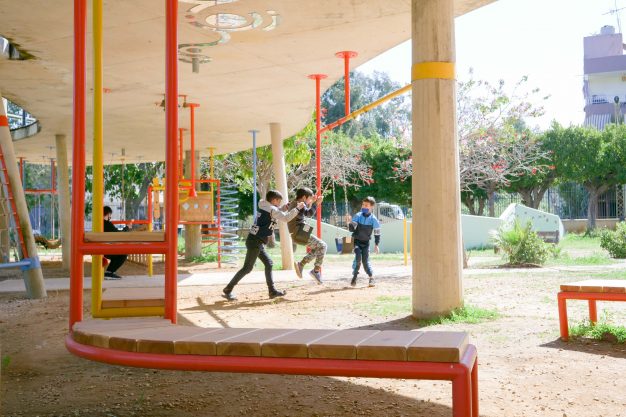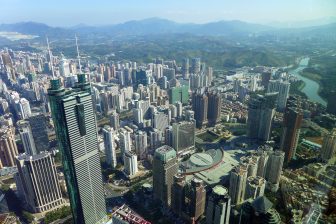
Rehabilitation of public spaces is child’s play for Beirut
A design charity has reacted to last year’s devastating explosion in Beirut by launching several collaborative ‘spatial interventions’ to rehabilitate public spaces vital to children’s health and development.
With a focus on children and play, the UK-based CatalyticAction, is focused on helping increase access to inclusive and safe public spaces.
On 4 August 2020 Beirut was devastated by an explosion in Beirut’s port district which had a profound impact on the city and its residents. This was particularly evident through the city’s infrastructure, with damage from the blast amounting to 15 billion US dollars.
And in a city which already has limited public space, the effects were subsequently felt way beyond just the damage caused. Crucially, it disproportionately impacted poorer neighbourhoods who rely on community infrastructure such as public parks and playgrounds.
‘Disproportionately impacted poorer neighbourhoods;
Children are one group who have been acutely affected by the blast. UNICEF estimates that 100,000 children have been directly affected by the disaster, and Plan International has highlighted the urgent need for psychosocial support to address the impact the blast has had on their ‘mental health and wellbeing’. With the added burden of Covid-19, Beirut’s residents are increasingly aware of both the need for, yet lack of public space.
Joana Dabaj, Co-Founder of CatalyticAction, said: “We believe that children have a right to feel safe, to play and to have a voice in the recovery of Beirut. They urgently need a safe place for which they can feel a sense of ownership.”
CatalyticAction says it has initiated a series of participatory spatial interventions that work with Beirut’s residents to address the damage from the blast and the absence of much needed public space. Using methods of co-design and community engagement, this participatory approach seeks to ensure that Beirut’s rehabilitation process reflects the needs and desires of its residents.
‘Children have had the opportunity to respond’
The organisation has been leading three particular collaborative projects, all in low-income neighbourhoods near the port that were both significantly affected by the explosion. The first is the rehabilitation of Karantina Public Garden in Karantina Park. Kan Ya Makan, (‘once upon a time’) uses storytelling, art, drawing and building to engage children and their community in the design of their new public space. Through these workshops, children have had the opportunity to respond to the crisis which has affected their neighbourhood through the creation of safety, comfort and security. Partners on the project are TDH Italy, UNICEF Lebanon, Nusaned NGO, Impact Lebanon and the AUB neighbourhood initiative.

Meanwhile, successfully up and running in the district of Mar Mikhael is the second project, Scaling Up Inclusive Parks in Beirut. This was initiated after a positive response to the Karantina project, and saw CatalyticAction team up with Himaya NGO, TDH Italy and UNICEF to improve access to public space by rehabilitating some of Beirut’s existing but neglected parks. These include the parks in Karm Al-Aris, Kaskas and Ghobeiry. By making simple improvements such as access to ramps, bathrooms, shaded areas, seating and play structures, the aim is ensure these vital public spaces are more inclusive for children across Beirut.
Finally, Rehabilitating Beirut’s Staircases, has been examining how staircases across Beirut are not just functional, but provide a place for residents to socialise, rest and be part of communal events. CatalyticAction says that the explosion caused severe damage to many of these important spaces, and so it has partnered with UN-Habitat – the United Nations’ Human Settlement Programme – to rehabilitate them in the neighbourhoods of Mar Mikhael and Gemmayze.
By fixing the physical damage, improving accessibility and enhancing social activity, CatalyticAction believes the project can significantly help the process of recovery and facilitate a conversation around the importance of community participation and public space.
Ilham Qomati, Director of Ghoberiy Public School, said: “Parks need to be prettier, more exciting and attractive to the children and youth. Compared to the built environment around it that is very demotivating and crowded. With dialogue around rehabilitation and public space at its height in Beirut, now is the time to create space and impetus for change. CatalyticAction believes that community participation is pivotal to this process.”
In 2015 CatalyticAction launched a pilot project, the ‘Ibatasem’ playground project, which was aimed at raising awareness of the crucial need for child-focused spaces in refugee camps, while also asking vital questions about the adequacy of commonly-used playground equipment such as swings and slides.




